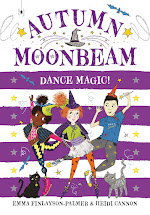WRITING KNOWHOW Voice (part two)
Have you developed your own writing style and found your voice yet? There’s no quick fix or easy solution to do this. But the one main and biggest tip to finding that voice is writing. It might seem obvious but the more you write the more you get to know you and how your words tumble out onto the page. Through those messy first drafts and how you choose to edit, your voice will emerge.
To develop your own writing voice you need to know yourself well. Whilst that might seem a silly thing to say it’s about knowing the sort of phrases you use – do you prefer short sentences or long ones, do you like characters who ramble or are shy, lots of dialogue or long descriptions, how do you notice the world around you? The list is endless but the more you write the more you get a feel for yourself coming through those words onto the page and that’s what will make your story unique. You’re selling an agent/publisher/reader your voice and making them want to come back for more of the same.
Read your writing out loud. It shows it in such a different light to how it reads on the page or screen. You’ll get a feel for the voice and how you stumble over a sentence – maybe it’s too long or you’ll linger over certain words or phrases.
There are many writers that you can pick up a book and, as you read, you’d easily know which author wrote it without being told the name. Liz Hyder, Patrice Lawrence, Frances Hardinge, (to name a few), all very much have their own style. Who are your favourite authors? Sometimes you might worry that reading will influence your own writing but reading far and wide is a great way to learn about voice from others, and to get a feel for what works or appeals to you.
*
Emma Finlayson-Palmer is an autistic, working class writer who lives in the West Midlands with her husband and a multitude of children, cats and chickens. Author of the Autumn Moonbeam series, including Dance Magic and Spooky Sleepover, published by UCLan in 2022. Emma runs #ukteenchat, a writing themed chat on Twitter and edits, mentors and reads competition entries for #WriteMentor and also reads flash fiction entries for Retreat West. She’s also one half of Word Witches as a children’s fiction editor. Find Emma on Twitter @FinlaysonPalmer
*
Jo E Verrill is an enthusiastic writer of humorous books for children, an advertising and broadcasting standards consultant and Words & Pictures KnowHow editor.
Got an idea for KnowHow or a subject you’d like to hear more on? Let us know at knowhow@britishscbwi.org












No comments:
We love comments and really appreciate the time it takes to leave one.
Interesting and pithy reactions to a post are brilliant but we also LOVE it when people just say they've read and enjoyed.
We've made it easy to comment by losing the 'are you human?' test, which means we get a lot of spam. Fortunately, Blogger recognises these, so most, if not all, anonymous comments are deleted without reading.